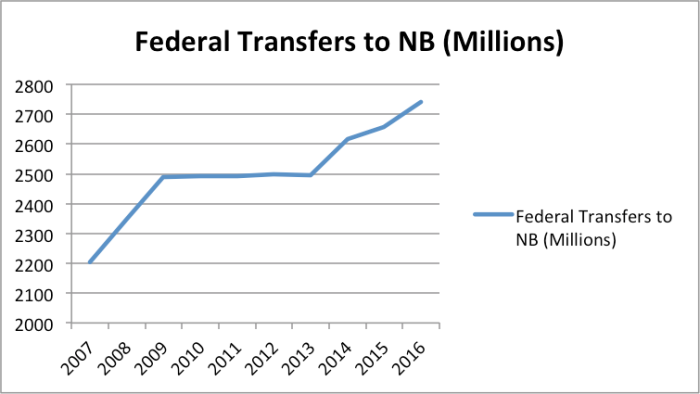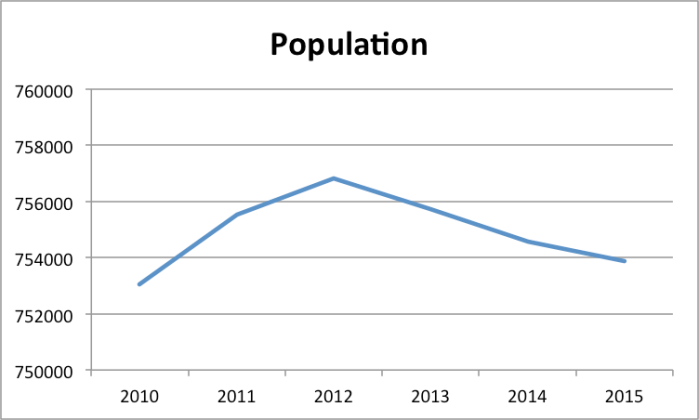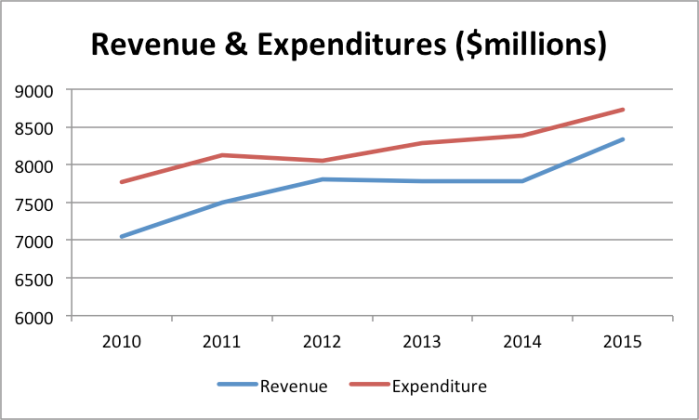By Leo Plumer, AIMS Intern
New Brunswick’s Treasury Board Minister Roger Melanson says that AIMS is wrong about his province’s spending problem. In a July 26 interview with CBC Radio in Moncton, he said that New Brunswick’s economic problems arise from neglect by the federal government. Contrary to a recent column in the Telegraph-Journal by AIMS’s VP of Research John Williamson, Melanson also trumpeted his government’s plan for fiscal recovery. Through a mix of tax hikes and spending cuts, he claims that New Brunswick can balance its books by 2020.
The facts tell a different story. The federal government has actually increased transfers in recent years. (NB receives $2.74-billion in total transfers for 2016; in 2010 it received $2.49-billion.)

Source: Department of Finance Canada
Compared with 2010, New Brunswick spends 11 percent more money, even though it has the same number of people. To suggest the problem is one of revenue – given the stagnation in population growth and the existing high tax burden – is absurd. There aren’t more revenue streams available under the current regime.

Source: Statistics Canada CANSIM Table 051-0001
If New Brunswick simply reduced its growth in spending, its books could be at surplus long before 2020. Instead, ever-increasing spending growth is taken as a given, making a catch-up very difficult indeed.

Source: NB Public Accounts
Finally, it is disingenuous and misleading for Melanson to say that his government’s approach is 50-50: half revenue and half spending cuts.
Spending reductions have not only been offset by a higher HST – the government is also hiking other forms of tax. Plus, the cuts are spread out over five years, while the tax hikes are happening now. That’s not a 50-50 split, but a 20-80 (or worse). So much for balance.
Even while hiking taxes, the government is still posting deficits. The evidence supports Williamson’s argument: New Brunswick’s economic woes are caused not by federal neglect or revenue shortfalls, but by fiscal indiscipline and high spending.